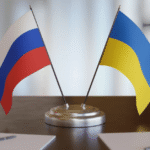Relation Between God and the World: Why This Topic Matters
Ever found yourself pondering the connection between God and our world? It’s a question that’s sparked debates, inspired countless sermons, and led many on personal journeys of faith. Recently, Shailendra Upadhyay delved into this profound topic in his YouTube lecture, offering fresh perspectives that resonate deeply. Let’s unpack the key takeaways from his discussion and explore the multifaceted relationship between the divine and our everyday lives.
Defining the Relationship: What Does It Mean to Relate to God?
At its core, the relationship between God and the world isn’t just a theological concept—it’s a lived experience. According to theologian John Piper, a relationship with God involves receiving communications from Him through His word and history, made vital by the presence of the Holy Spirit within us.
This relationship is multifaceted:
Creation: God as the originator of all things.
Conservation: God sustaining the universe.
Transformation: God actively working to change and redeem the world.
Understanding this triad helps us see that God’s interaction with the world is ongoing and dynamic, not a one-time event.

Historical Context: How Has This Relationship Evolved Over Time?
The Bible offers a timeline that showcases the evolving relationship between God and humanity:
Creation: God creates the universe and humanity.
The Fall: Humanity’s disobedience leads to separation from God.
Promise: God’s covenant with Abraham to bless all nations.
Commandments: Guidelines given to Moses for righteous living.
Jesus: God’s incarnation to restore the broken relationship.
Salvation: Through Jesus’ death and resurrection, humanity can reconnect with God.
Heaven: The ultimate reunion of God and believers.
This progression illustrates a God deeply invested in restoring and nurturing His relationship with the world.
Why Do People Struggle With the Concept of God?
Let’s be honest here—talking about God can be a minefield. Some folks avoid it like a dentist appointment, while others dive headfirst into it like it’s free pizza on a Friday night. The truth? For many, the idea of God feels abstract, sometimes painfully so. How do you relate to someone—or something—that you can’t physically see or text or tag on Instagram? It doesn’t help that religious teachings have been twisted and politicized over centuries.
Combine that with personal experiences (good or bad) and what you get is a deeply personal, sometimes confusing cocktail of faith, fear, and doubt. Some grew up with fire-and-brimstone sermons that painted God as a cosmic judge waiting to zap people for skipping Sunday service.
Others have felt a quiet whisper during life’s lowest lows—a comforting presence that defies logic. The point is, the relationship looks different for everyone. And sometimes, it’s more about the journey of figuring it out than arriving at a concrete answer.

Can the World Actually Influence God?
Here’s something wild to chew on—can the world influence God? Like, can our choices, actions, and even screw-ups actually change how God feels or responds? Traditionally, most of us were taught that God is unchangeable. Immutable, as the theology books say. But then you get moments in scripture—Abraham bargaining with God over Sodom, Moses convincing God not to wipe out the Israelites—where it looks like humans actually changed God’s mind. So… what gives? Some thinkers argue that God allows Himself to be moved—not because He’s indecisive, but because that’s what a relational God does.
If you’re in a relationship, you listen, you respond, you care. And that means adjusting sometimes. Maybe God’s not up in the sky with a cosmic checklist. Maybe He’s right here, fully present, experiencing reality with us in some mysterious way. That changes everything. Suddenly, prayer isn’t just venting into the void—it’s dialogue. Suddenly, how we treat each other might ripple into eternity. Crazy, right?
Are We Missing the Point Entirely?
Here’s a curveball: what if all our fancy debates and theological gymnastics are just noise? What if the whole point of this God-world relationship isn’t to define it perfectly—but to live it? Think about it—every time someone forgives when they could’ve lashed out, every time a stranger helps someone in need, every time we choose love over fear, aren’t we participating in something divine?
Maybe God isn’t just “out there” managing galaxies and miracle schedules. Maybe God is also “in here”—nudging us, challenging us, laughing with us, crying with us. Maybe the relationship is less about proving doctrines and more about being human in the best possible way. That doesn’t mean rules don’t matter. But maybe they’re the scaffolding, not the building.
The real thing? It’s messy, honest, raw, beautiful. Kinda like life. Or pizza—when it’s slightly burnt on the edges but still melts in your mouth.
Diverse Perspectives: How Do Different Traditions View This Relationship?
Various theological frameworks offer unique insights:
Panentheism: The belief that the world is in God, but God is more than the world.
Classical Theism: God is wholly other, transcendent, and unchanging.
Process Theology: God is dynamic and evolves with the world.
These perspectives influence how individuals perceive God’s involvement in worldly affairs, from distant overseer to intimate participant.
Contemporary Implications: Why Does This Matter Today?
In today’s world, understanding our relationship with God has practical implications:
Moral Compass: Belief in a relational God can guide ethical decisions.
Community Building: Shared faith fosters unity and support.
Purpose and Meaning: Recognizing a divine connection can provide a sense of purpose.
Moreover, acknowledging God’s active role in the world can inspire hope amidst challenges, reminding us that we’re not alone in our struggles.

Future Outlook: Where Is This Relationship Headed?
Looking ahead, the relationship between God and the world continues to unfold:
Second Coming: Many traditions anticipate a future return of Jesus to fully restore the world.
Ongoing Revelation: Believers expect continued guidance and insight from God.
Eternal Union: The hope of an everlasting, unbroken relationship with the divine.
These future expectations shape how individuals live in the present, influencing their choices and priorities.
FAQs: Common Questions About the God-World Relationship
What does it mean to have a personal relationship with God?
It involves ongoing communication, trust, and alignment with God’s will, facilitated by prayer, scripture, and community.
How can I strengthen my relationship with God?
Engage in regular prayer, study religious texts, participate in community worship, and practice ethical living.
Does God interact with the world today?
Many believe that God continues to work through events, people, and personal experiences.
Why does God allow suffering if He loves the world?
This is a complex question, often addressed through discussions on free will, the nature of evil, and the greater good.
Can science and belief in God coexist?
Many find harmony between scientific understanding and faith, seeing science as a way to explore God’s creation.
Is God present in all religions?
Different faiths have varied conceptions of the divine, but many share themes of a higher power’s involvement in the world.
How do different cultures perceive God’s relationship with the world?
Cultural contexts influence beliefs, leading to diverse interpretations and practices.
What role does Jesus play in the God-world relationship?
In Christianity, Jesus is seen as the bridge between God and humanity, restoring the broken relationship.
How do I know if God is speaking to me?
Many believe God communicates through scripture, inner convictions, circumstances, and spiritual leaders.
Can someone lose their relationship with God?
Beliefs vary, but many traditions emphasize God’s enduring love and the possibility of reconciliation.
Why is the concept of God important in understanding the world?
It provides a framework for meaning, purpose, and moral guidance.
How does prayer influence our relationship with God?
Prayer is seen as a direct line of communication, fostering intimacy and understanding.
What is the significance of the Holy Spirit in this relationship?
In Christian belief, the Holy Spirit acts as a guide, comforter, and presence of God within believers.
How do religious rituals impact our connection with God?
Rituals serve as tangible expressions of faith, reinforcing beliefs and community bonds.
Is it possible to have a relationship with God without organized religion?
Many believe personal faith and spirituality can exist outside formal religious structures.
Conclusion: Embracing the Divine Connection
Understanding the relationship between God and the world isn’t just an academic exercise—it’s a journey that touches every aspect of our lives. Whether through historical events, personal experiences, or communal practices, this connection offers guidance, purpose, and hope. As we navigate the complexities of life, recognizing and nurturing this relationship can provide a steadfast anchor.
For more insights and resources on deepening your spiritual journey, visit Gemscor.














